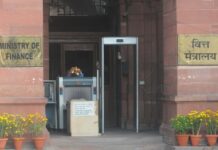New Delhi–Taking up some long-pending issues in the oil and gas space, India on Thursday approved a new policy for their exploration, and defined the pricing norms for existing and new discoveries made in difficult areas. Contracts for 28 old blocks were also extended.
Briefing the media on the decisions of a cabinet meeting presided over by Prime Minister Narendra Modi, Petroleum Minister Dharmendra Pradhan said the new oil and gas exploration policy will now be based on a revenue-sharing model, as opposed to cost-and-output-based norms earlier.
The difficult areas for which the new pricing norms have now been formulated are defined as those from deep-water, ultra deep-water and high-pressure, high-temperature areas. Such areas were not considered when prices were fixed for normal gas discoveries in October 2014.
The bulk of such fields are with Reliance Industries and state-run Oil and Natural Gas Corp.
What could impact the discovered oil fields of Reliance Industries is a clause that says if there are pending arbitration or litigation cases pertaining to such assets, the new policy shall only become applicable upon the conclusion or withdrawal of legal proceedings.
The decision had an impact on the shares of Reliance Industries. They steadily fell during the day — from Rs.1,045 to Rs.1,012, to log a loss of 2.87 percent. The company said it will await the fine print before reacting.
The shares of ONGC closed higher by 0.29 percent at Rs.205.70.
On difficult discoveries, an official statement later said the price will be calculated once in six months. The government feels this could potentially monetise 28 discoveries and also lead to some major investment. Reserves associated with such blocks are valued at $28.35 billion.
The oil minister said production contracts on some of the discovered fields could not be signed during last two decades due to a number of reasons, including arbitration proceedings, court cases, observations by the official auditor on “gold plating” of costs and alleged scandals.
“Resources worth more than Rs.261,000 crore will be brought into production as the result of today’s cabinet decisions,” Pradhan said. “The decisions will also go a long way in generating employment, enhance transparency and reduce administrative discretion.”
He said the new exploration and licensing policy will allow production of both conventional and unconventional hydrocarbons, including shale gas and coal-bed methane, under a single license. “It also provides for marketing freedom for crude oil and natural gas produced from the blocks.”
Among the other decisions of the cabinet pertaining to the oil and gas sector, a Rs.8,000-crore outlay was provided to extend subsidised cooking gas to 50 million poor families in the name of the woman member, and the extension of contracts for 28 older hydrocarbon blocks.
This apart, the cabinet cancelled the Ratna and R-Series field contract awarded in 1996 to a consortium of Essar Oil and Oil Pacific UK.
In his budget speech last month, Finance Minister Arun Jaitley had said the government will extend incentives for the discovery and exploration of gas by providing companies the freedom to market the output.
“India is blessed with rich natural resources including oil and gas. However, their discovery and exploitation has been below our potential. Imports of hydrocarbons occupy a large share of India’s total imports,” Jaitley said.
“As part of our drive towards self-sufficiency, the government is considering to incentivise gas production from deep-water, ultra deep-water and high pressure-high temperature areas, which are presently not exploited on account of higher cost and higher risks,” he said.
He said companies will be provided calibrated marketing freedom, and also a pre-determined ceiling price discovered from global benchmarks. (IANS)






